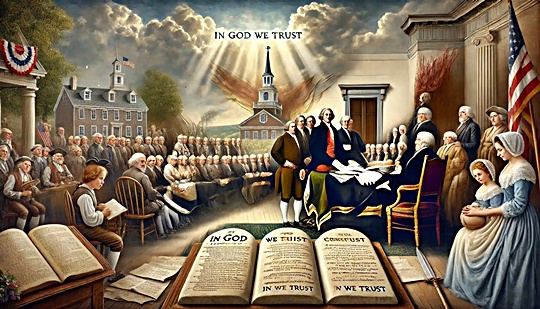*Deep State Senators Tied to Maduro's Narco Cash:
Lisa Murkowski – R – Alaska
Mark Kelly – D – Arizona
Ruben Gallego – D – Arizona
Alex Padilla – D – California
Adam Schiff – D – California
Michael Bennet – D – Colorado
John Hickenlooper – D – Colorado
Richard Blumenthal – D – Connecticut
Chris Murphy – D – Connecticut
Chris Coons – D – Delaware
Jon Ossoff – D – Georgia
Raphael Warnock – D – Georgia
Brian Schatz – D – Hawaii
Mazie Hirono – D – Hawaii
Dick Durbin – D – Illinois
Tammy Duckworth – D – Illinois
Chuck Grassley – R – Iowa
Joni Ernst – R – Iowa
Mitch McConnell – R – Kentucky
Rand Paul – R – Kentucky
Bill Cassidy – R – Louisiana
Susan Collins – R – Maine
Angus King – I – Maine
Chris Van Hollen – D – Maryland
Angela Alsobrooks – D – Maryland
Elizabeth Warren – D – Massachusetts
Ed Markey – D – Massachusetts
Gary Peters – D – Michigan
Elissa Slotkin – D – Michigan
Amy Klobuchar – D – Minnesota
Tina Smith – D – Minnesota
Roger Wicker – R – Mississippi
Bob Fischer – R – Nebraska
Jacky Rosen – D – Nevada
Catherine Cortez Masto – D – Nevada
Jeanne Shaheen – D – New Hampshire
Maggie Hassan – D – New Hampshire
Cory Booker – D – New Jersey
Andy Kim – D – New Jersey
Martin Heinrich – D – New Mexico
Ben Ray Lujan – D – New Mexico
Chuck Schumer – D – New York
Kirsten Gillibrand – D – New York
Thom Tillis – R – North Carolina
James Lankford – R – Oklahoma
Ron Wyden – D – Oregon
Jeff Merkley – D – Oregon
Dave McCormick – R – Pennsylvania
Jack Reed – D – Rhode Island
Sheldon Whitehouse – D – Rhode Island
John Thune – R – South Dakota
John Cornyn – R – Texas
Bernie Sanders – I – Vermont
Peter Welch – D – Vermont
Mark Warner – D – Virginia
Tim Kaine – D – Virginia
Patty Murray – D – Washington
Maria Cantwell – D – Washington
Jim Justice – R – West Virginia
Tammy Baldwin – D – Wisconsin
*Deep State Senators Tied to Maduro's Narco Cash:
Lisa Murkowski – R – Alaska
Mark Kelly – D – Arizona
Ruben Gallego – D – Arizona
Alex Padilla – D – California
Adam Schiff – D – California
Michael Bennet – D – Colorado
John Hickenlooper – D – Colorado
Richard Blumenthal – D – Connecticut
Chris Murphy – D – Connecticut
Chris Coons – D – Delaware
Jon Ossoff – D – Georgia
Raphael Warnock – D – Georgia
Brian Schatz – D – Hawaii
Mazie Hirono – D – Hawaii
Dick Durbin – D – Illinois
Tammy Duckworth – D – Illinois
Chuck Grassley – R – Iowa
Joni Ernst – R – Iowa
Mitch McConnell – R – Kentucky
Rand Paul – R – Kentucky
Bill Cassidy – R – Louisiana
Susan Collins – R – Maine
Angus King – I – Maine
Chris Van Hollen – D – Maryland
Angela Alsobrooks – D – Maryland
Elizabeth Warren – D – Massachusetts
Ed Markey – D – Massachusetts
Gary Peters – D – Michigan
Elissa Slotkin – D – Michigan
Amy Klobuchar – D – Minnesota
Tina Smith – D – Minnesota
Roger Wicker – R – Mississippi
Bob Fischer – R – Nebraska
Jacky Rosen – D – Nevada
Catherine Cortez Masto – D – Nevada
Jeanne Shaheen – D – New Hampshire
Maggie Hassan – D – New Hampshire
Cory Booker – D – New Jersey
Andy Kim – D – New Jersey
Martin Heinrich – D – New Mexico
Ben Ray Lujan – D – New Mexico
Chuck Schumer – D – New York
Kirsten Gillibrand – D – New York
Thom Tillis – R – North Carolina
James Lankford – R – Oklahoma
Ron Wyden – D – Oregon
Jeff Merkley – D – Oregon
Dave McCormick – R – Pennsylvania
Jack Reed – D – Rhode Island
Sheldon Whitehouse – D – Rhode Island
John Thune – R – South Dakota
John Cornyn – R – Texas
Bernie Sanders – I – Vermont
Peter Welch – D – Vermont
Mark Warner – D – Virginia
Tim Kaine – D – Virginia
Patty Murray – D – Washington
Maria Cantwell – D – Washington
Jim Justice – R – West Virginia
Tammy Baldwin – D – Wisconsin









